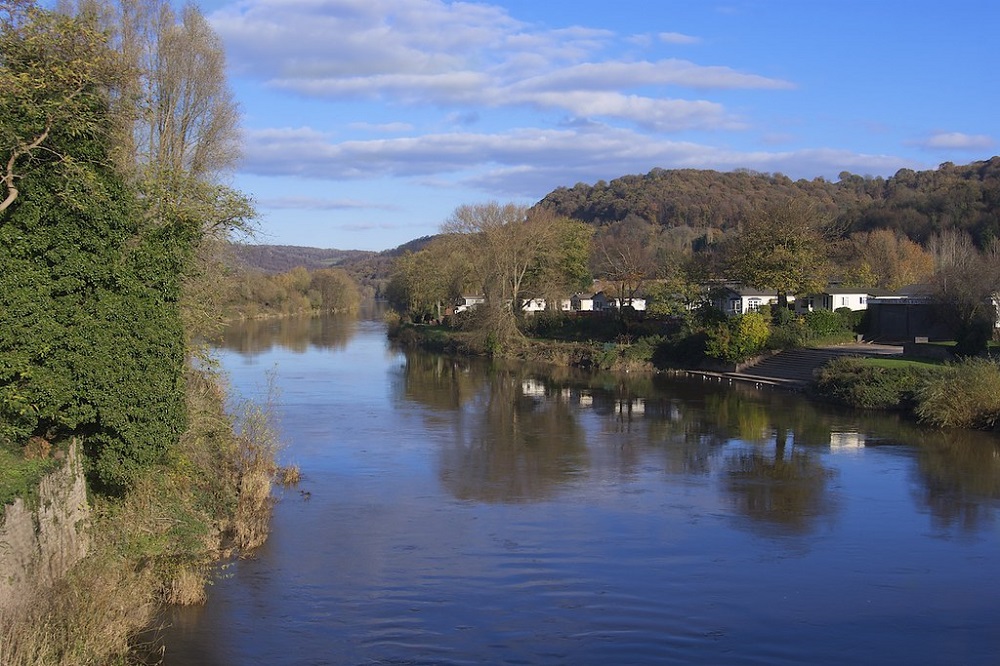No evidence of link between increase of intensive poultry units and Wye pollution says NRW

Gavin McEwan, local democracy reporter
National Resources Wales claims there is no evidence the condition of the River Wye is worsening due to the proliferation of intensive poultry units in the catchment, according to a pressure group campaigning against pollution in the river
Fish Legal says it has been told by NRW that the agency is under no obligation to act due to the lack of evidence.
According to NRW, which based its conclusions on 2009-2015 data, only one river within the Wye catchment, the Afon Chwefru in Wales, has been identified as potentially deteriorating.
Fish Legal, formerly the Anglers’ Conservation Association, says it provided NRW with its own expert report which should have compelled it to take action to address the problem, particularly on the river Ithon, a main tributary of the Wye in Wales.
Its solicitor Justin Neal said: “This is a clear example of a regulator burying its head in the sand.
“They will continue to rely on their own out-of-date assessments to deny what is glaringly obvious to everyone else: the River Wye as a habitat for wildlife is deteriorating.”
NRW’s head of mid-Wales operations Gavin Bown said: “The factors contributing to pollution in the Wye catchment are complex with a range of different sources contributing to phosphate levels in the river system.
“We can confirm that we have been in correspondence with Fish Legal, who continue to consider the legal position, and so we cannot comment any further at this moment in time.”
Criticised
Earlier this year, evidence gathered for a House of Commons committee report saw both Powys Council and Natural Resources Wales criticised for not doing enough to keep the River Wye clean.
The problem of phosphate pollution from farming entering the Wye was addressed in the Environmental Audit Committee’s Water Quality in Rivers report which was published in January.
The river runs through Wales and England and forms the border between them for 16 miles.
The leader of Herefordshire Council David Hitchiner told the committee that neither Natural England nor the Environment Agency “have been forthcoming with a solution”, while Natural Resources Wales “has been even less effective in Wales, if this is possible”.
The report cites an estimate by campaigners that there are now 20 million farmed birds in the Wye catchment and “millions more” in neighbouring catchments.
One academic told the committee that cattle and sheep are also significant sources of pollution in the river.
Spreading manure from poultry units on surrounding fields causes “a net annual gain of phosphorus accumulating in soils and river sediments in the Wye catchment”, the report says.
Environment Agency modelling included in the report said that farming now accounts for nearly two-thirds of the total pollution in the Wye and Lugg rivers.
Support our Nation today
For the price of a cup of coffee a month you can help us create an independent, not-for-profit, national news service for the people of Wales, by the people of Wales.





“Cattle & sheep are also significant sources of pollution in the river”. I’m certainly no expert on this but surely cattle & sheep have been kept on the farmlands bordering the Wye for centuries now with no discernible pollution problems as far as I’m aware, ( happy to be corrected on this). As is well known, there has been a proliferation of poultry sheds/factories along side of, or in the vicinity of the Wye over the last decade or so to satisfy our demand for everything chicken ( roast dinner to chicken burger & everything in between) so surely it… Read more »
How dead do Welsh rivers have to be? NRW is evidently useless and yet under public control(bit like Dwr Cymru?). Slurry spreading,silage production and intensive animal farming are indeed adding to the problem but to pretend the scale of poultry units is not destroying the River Wye+tributaries is deceitful.